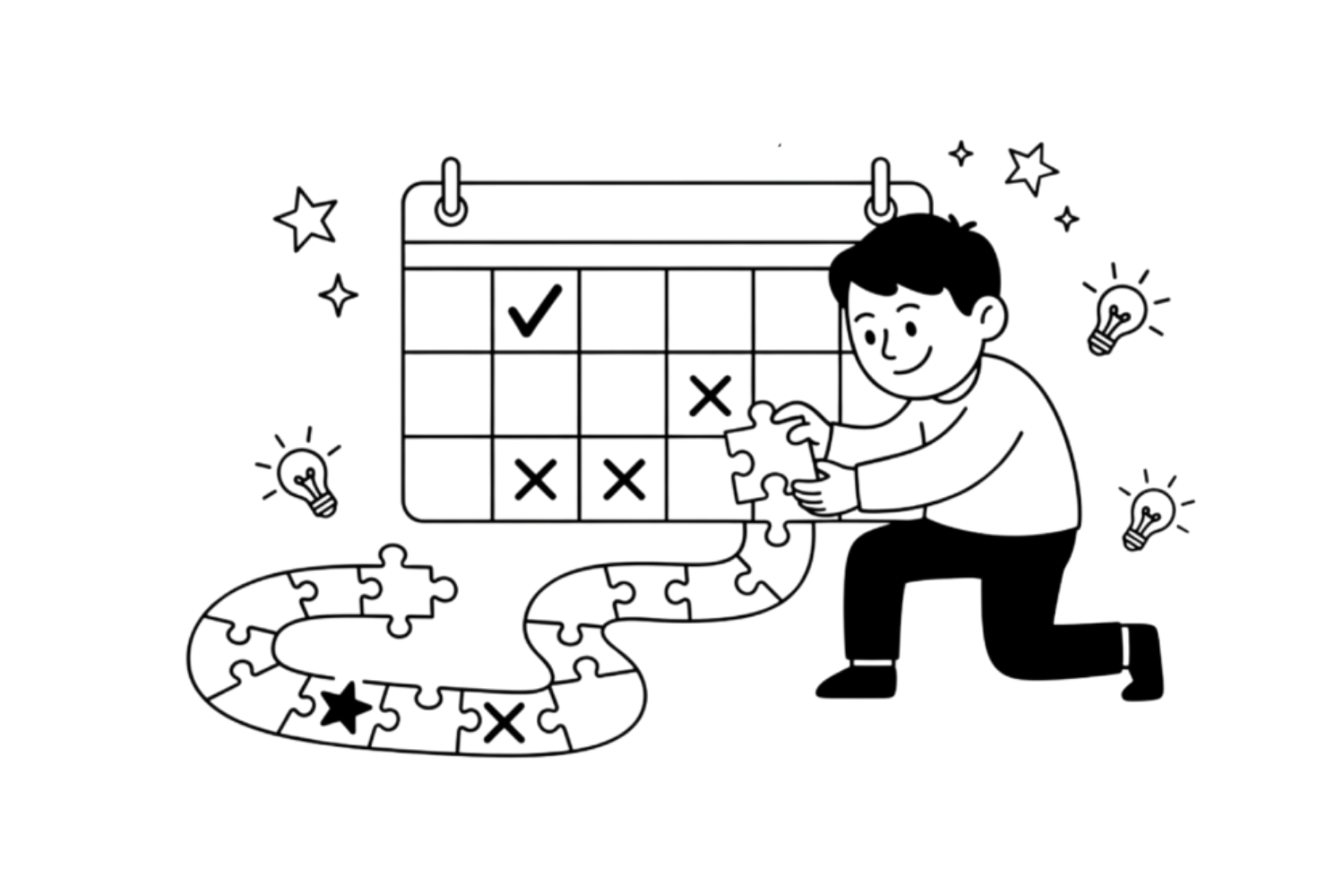You're staring at a Fields puzzle, scanning for your next move. Nothing jumps out immediately, so you start wondering: "What if I colored this cell blue? Then that region would need to connect here, which means..."
Stop right there. Is this logical thinking or just guessing?
If you've been avoiding this kind of reasoning because it feels like cheating, you're missing out on one of puzzle solving's most powerful tools.
The Difference Between Logic and Luck
Here's the key distinction: Guessing is random. Looking ahead is systematic.
When you guess, you're picking options arbitrarily and hoping for the best. When you look ahead, you're following logical consequences step by step. You're asking: "If I make this move, what MUST happen next?"
Think of it like chess. When a chess player considers "If I move my queen here, they'll have to move their king there, which opens up this attack," they're not guessing. They're calculating.
The same applies to logic puzzles.
Why Your Brain Resists Looking Ahead
Many puzzle solvers feel uncomfortable with multi-step reasoning because it doesn't feel "pure." We want that perfect logical step that's immediately obvious.
But here's the reality: Almost every non-trivial puzzle step involves some looking ahead. The difference between easy and hard moves isn't whether you look ahead, but how many steps ahead you need to look.
Easy move: "This cell must be blue because otherwise this region would have nowhere to grow."
Hard move: "This cell must be blue because if it were green, then that would force this other region to grow this way, but then it would be too big for its number, creating a contradiction three moves later."
Both are logical. One just requires more steps.
The Art of Productive Looking Ahead
Not all looking ahead is created equal. Here's how to make it count:
Start with suspicious cells. Don't randomly test every empty cell. Look for squares that seem constrained or critical to the puzzle's structure.
Follow forced moves. When you make a hypothetical move, don't immediately jump to another choice. Follow the logical chain as far as it goes before making your next decision.
Look for contradictions, not solutions. It's often easier to prove something CAN'T work than to prove it can. If your hypothetical move leads to an impossible situation, you've learned something valuable.
Trust the process. If your reasoning is sound and leads to a contradiction, that's not a failure—it's information.
Common Looking Ahead Scenarios in Fields
Here are some situations where thinking ahead is not just helpful but necessary:
Space constraints: A region needs room to grow to match its number. Test whether potential paths actually have enough cells available.
Connection requirements: Two areas of the same color can't touch. Work out whether a move would force an illegal connection later.
Border logic: Regions need boundaries. It's helpful to try to visualize those future boundaries - sometimes you need to trace where those boundaries would go to spot problems.
Number placement: If a cell must belong to a specific number, what does that mean for other potential territories of that number?
Edge analysis: Look at the board's edges strategically. If you see two cells of the same color touching the edge that belong to different regions, there must be an opposite-color cell touching the edge somewhere between them.
Distance reasoning: Some cells might be too far from all numbers of a certain color, which means they must be the other color.
Separation logic: When two same-color regions need to be kept apart, work out what cells the separating region must occupy.
Practice Makes Perfect
Start small. When you're stuck on an easier puzzle, try one step of looking ahead instead of immediately giving up. Ask yourself: "What would happen if I colored this specific cell blue?"
Then follow that thought to its logical conclusion. You might discover the move works perfectly, creates an obvious contradiction, or teaches you something about the puzzle's structure.
But remember, as puzzle designer Elyot Grant puts it: "Some puzzles are just really hard, and Sundays especially have been designed to be super tough. They sometimes require global reasoning about how things can fit together. Playing around with different ways that big numbers can flow is sometimes useful for spotting places where the constraints might be tight or there might be contradictions to find."
In other words, if you're finding Sunday puzzles particularly challenging and needing to think several steps ahead, that's by design. You're not doing anything wrong.
And here's the key mindset shift: it's okay to do something that feels like a guess. You may end up uncovering a constraint you didn't see before. Even if your hypothetical move doesn't immediately solve the puzzle, it often reveals information about how the puzzle's structure works.
The Bottom Line
Looking ahead isn't guessing—it's thinking. It's using your logical brain to explore possibilities systematically rather than randomly.
The goal isn't to avoid this kind of reasoning but to get better at it. The more you practice following logical chains, the faster you'll spot contradictions and the more confident you'll become with harder puzzles.
So next time you catch yourself thinking "What if..." don't stop. Follow that thought. Your puzzle-solving skills will thank you.
Ready to test your looking ahead skills? Try today's Fields puzzle and pay attention to moments where you naturally start thinking ahead. That's your logical brain doing what it does best.


.png)
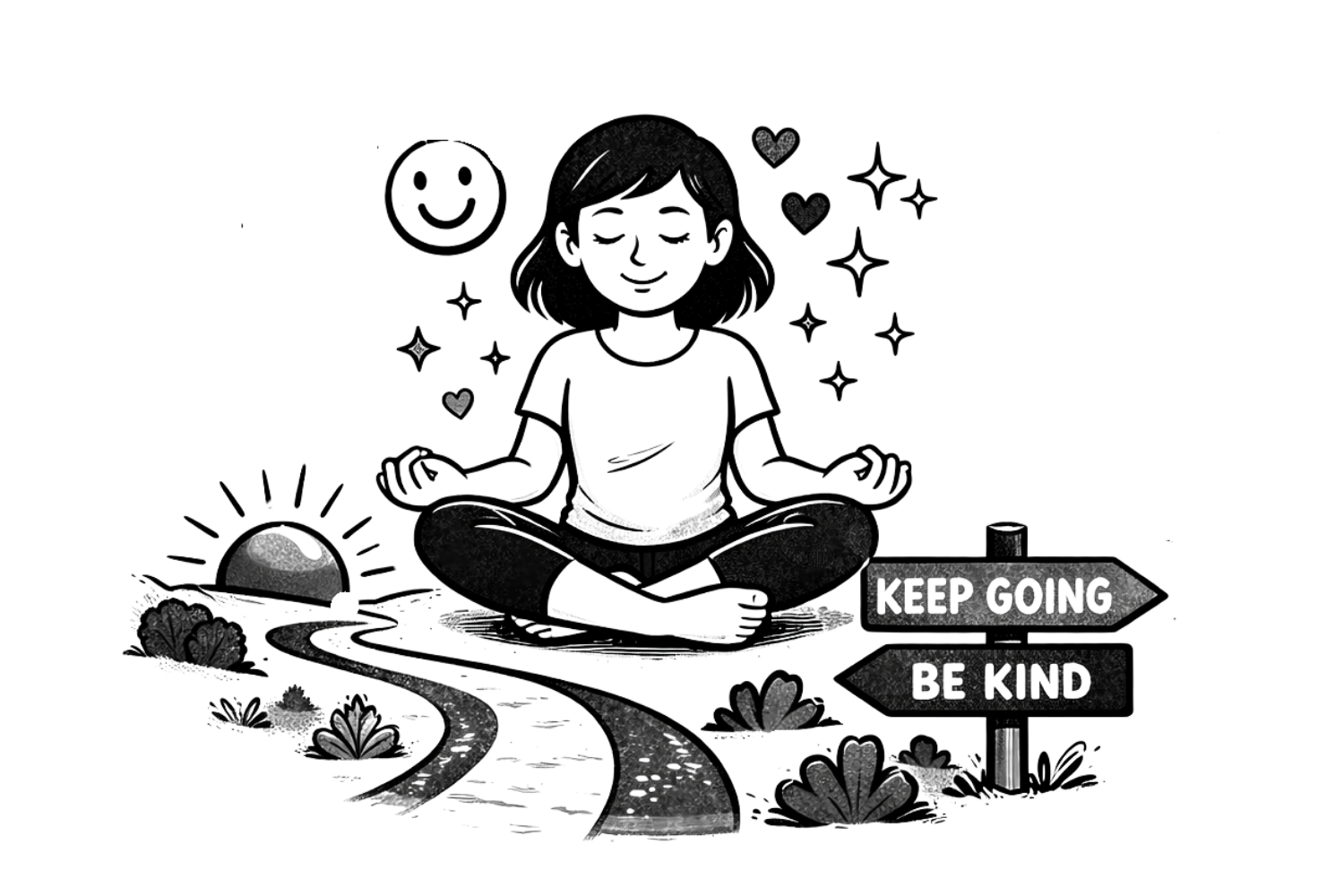
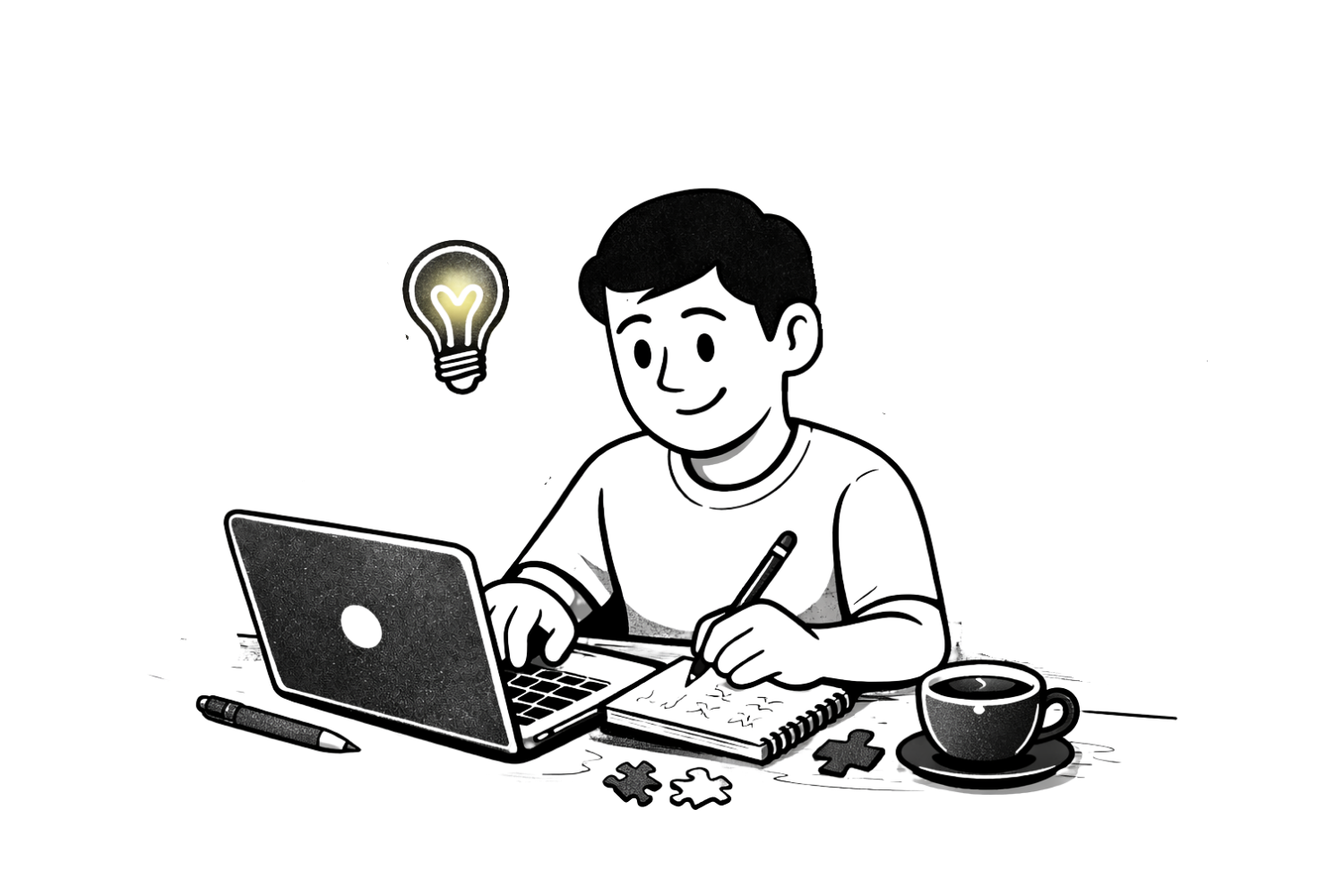
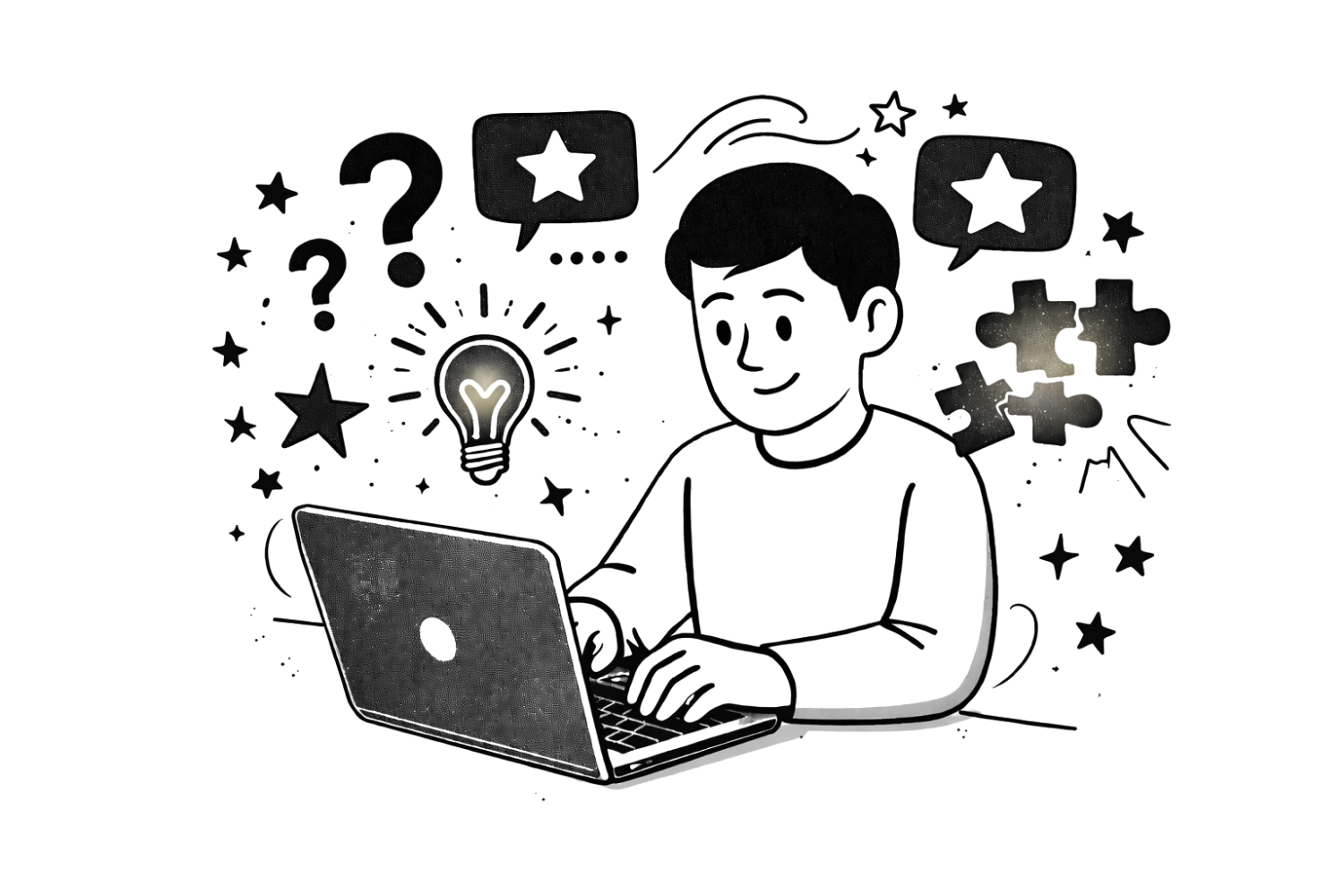
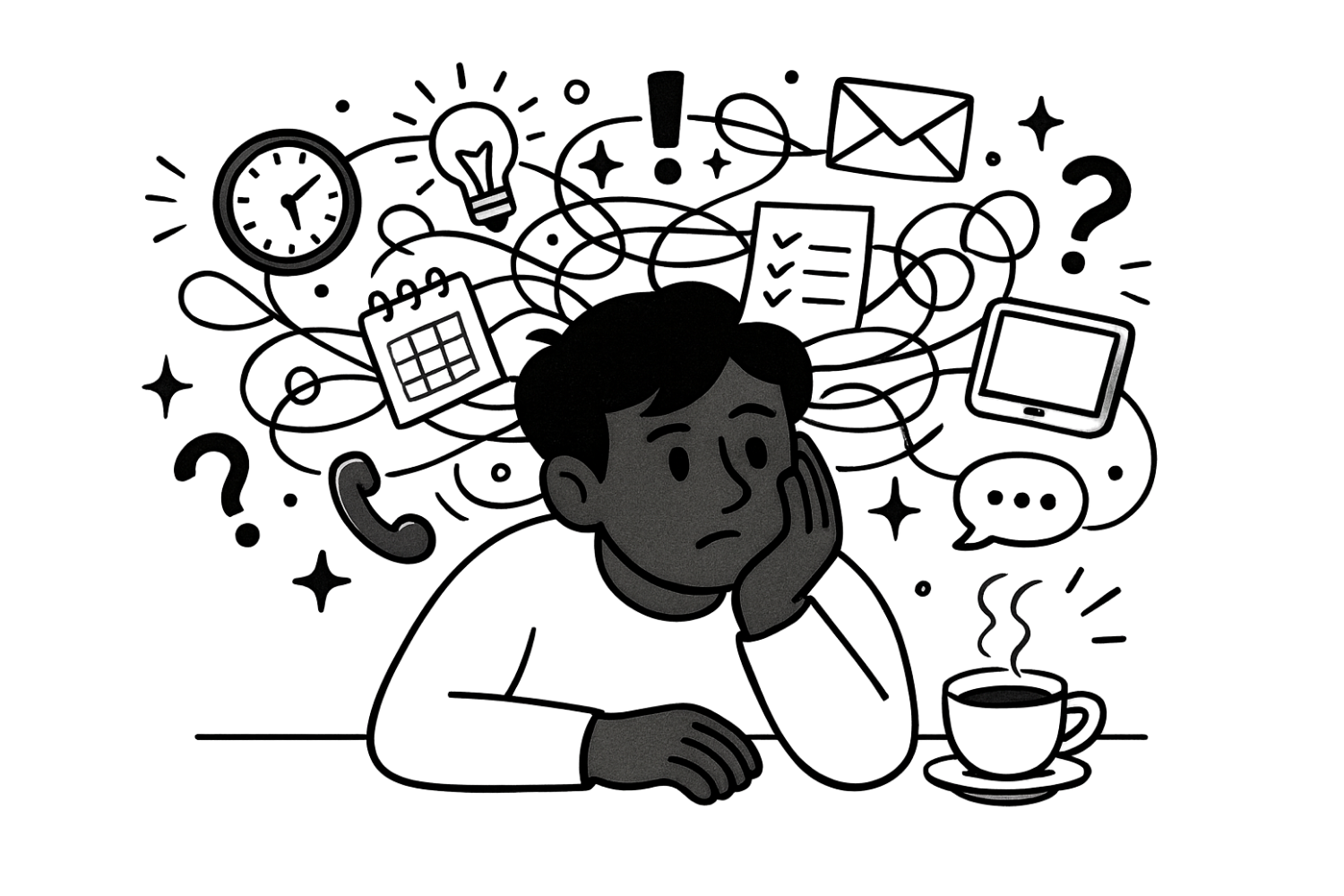
.png)
